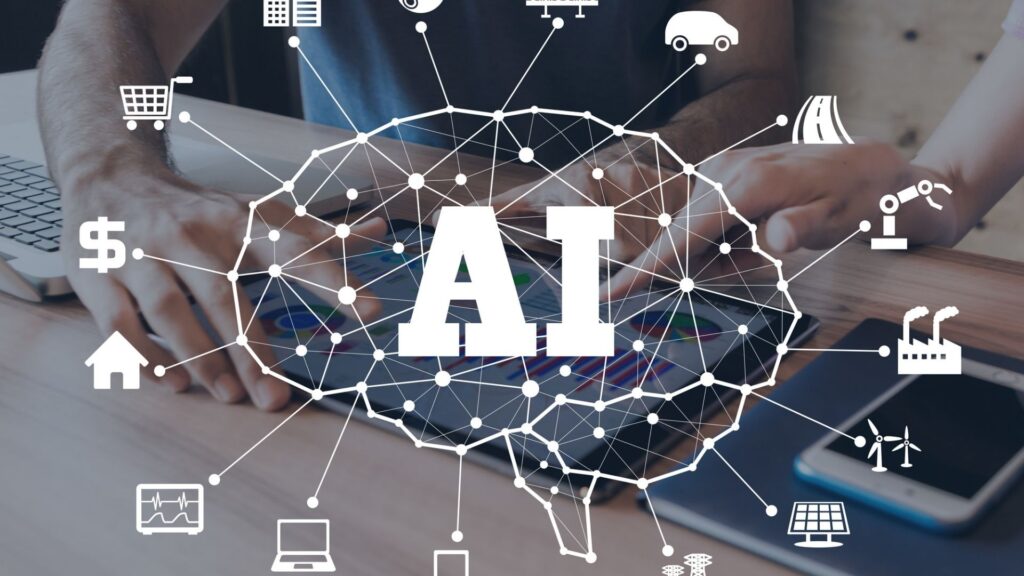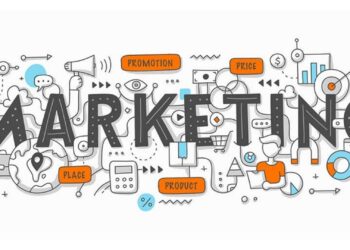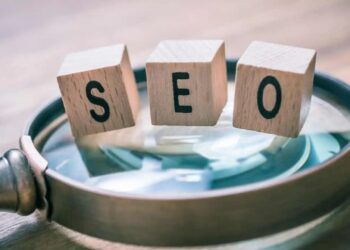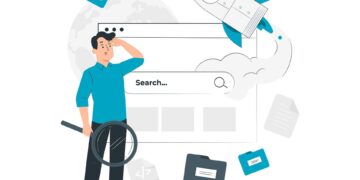Table of Contents
This article includes the top 10 AI marketing examples you could use in your campaigns, including the definitions and full breakdown for a better understanding.
AI is undoubtedly one of the most promising markets in the near future. According to a study, it is expected to be worth $36.8 billion by 2025. We gathered the top 10 AI marketing examples to help you understand its use cases, areas, and industries in the marketing field. Let’s keep the introduction short to start learning about it!

AI use cases in marketing
There are multiple different AI use cases in marketing. In different industries, AI is used to fulfill different needs, mainly to boost sales and make more revenue. These use cases shape around customer-targeted and solution-oriented marketing campaigns, basically most marketing campaigns. Personalization, recommendation, segmentation, recognition, and chatbots are some of the AI marketing examples, and let’s dive deeper into these terms.
Personalization
One of the main applications of AI in marketing is personalization. Marketers may provide clients with personalized experiences that consider their particular interests and behaviors with the aid of AI. AI may offer customized product recommendations, personalized messaging, and individualized pricing by examining client data like browsing history and purchasing activity.
This degree of customization can increase client loyalty and encourage repeat business. Customers are more apt to interact with a company if it recognizes their wants and offers them a tailored experience.
Another area where AI can be utilized to create personalization is individual pricing. By evaluating customer data, AI can determine the best price point for each consumer depending on their willingness to pay. This can increase sales and revenue for the business while maintaining a fair and customized price for the clients.
Customer Segmentation
Using AI, it is possible to classify and identify clients based on shared traits and behaviors. Marketers can segment their client base to target better messaging and campaigns that appeal to each category. Customers are more likely to respond to messaging that is relevant to their interests, which can increase engagement and conversions and count as one of the AI marketing examples.
Marketers can develop customized messages and campaigns for each section of clients after segmenting them. This could entail generating email campaigns that are tailored to various consumer categories, personalizing landing pages for customers based on their browsing habits, or making adverts that directly appeal to each group’s interests.
Chatbots
Chatbots are software applications that replicate human communication using artificial intelligence. They can be used to offer customer service, respond to frequently asked inquiries, and even promote products. Client support operations may be made more efficient, and customer engagement can be increased via chatbots.
Chatbots’ 24/7 accessibility, which enables users to request assistance or information anytime, is one of their key advantages. Customers from other time zones or those who want to communicate outside of usual business hours may find this to be extremely useful. Customers will wait less for chatbots because they can handle many queries simultaneously, freeing up customer support agents to handle more difficult inquiries.
Customers can access chatbots from any location by integrating them into a business’s website or social media platforms. Chatbots are computer programs that can comprehend natural language and learn from it to interpret client inquiries and give pertinent answers. Additionally, as they accumulate more data, they can learn from past consumer interactions, improving their accuracy and usefulness.

10 AI marketing examples
Artificial intelligence (AI) has completely changed the marketing sector recently, allowing organizations to make data-driven decisions, get insightful information, and automate laborious or impossible operations. It surely has an incredible impact on human life, and here are the top 10 AI marketing examples!
Personalized recommendation
One of the most popular and successful applications of artificial intelligence (AI) in marketing is personalized product suggestions. AI can give clients personalized recommendations by examining customer data like purchase history and surfing habits. Making pertinent product recommendations can enhance the shopping experience for clients and boost revenues by incentivizing repeat purchases.
One of the key advantages of tailored product suggestions is the ability to introduce clients to new products that they might not have otherwise encountered. AI can identify products that are likely to interest a client by examining their browsing and buying history. Sales growth and improved customer satisfaction may result from this.
It might promote client loyalty. Businesses can demonstrate to clients that they understand their wants and preferences by making pertinent and useful recommendations. The customer connection may be strengthened as a result, and repeat business may be encouraged.
SEO
Artificial intelligence (AI) has recently significantly impacted search engine optimization (SEO) marketing. AI can assist marketers in finding ways to raise organic traffic and search engine rankings by evaluating website data.
The usage of AI in SEO includes the use of keyword research. AI can determine the keywords and phrases that are most likely to bring visitors to a website by examining search patterns and user behavior. This can assist marketers in content optimization and search engine ranking improvement.
Optimizing on-page elements like page speed and mobile friendliness can also be beneficial. AI can offer ways to improve a website’s search engine optimization by examining website data to find places for improvement. This can enhance user experience and raise the possibility of turning up in the top search results.
Link building makes use of AI as well. AI can assist marketers in finding possibilities to create high-quality backlinks to their own websites by examining the backlink profiles of top-ranking websites. This may help to raise organic traffic and search engine rankings.
Fraud prevention
Another area where artificial intelligence (AI) is being used more and more in marketing is fraud detection. AI can assist in identifying fraudulent activities and preventing financial losses for firms by evaluating vast amounts of data.
Anomaly detection is one method that AI is put to work in the fraud detection process. Artificial intelligence (AI) can spot odd or suspicious conduct that might be a sign of fraud by examining patterns in user behavior. This can assist companies in swiftly identifying and addressing possible hazards, lowering the likelihood of suffering financial losses.
By examining previous data, AI can find patterns and trends linked to fraudulent behavior. This can assist companies in proactively identifying possible fraud threats and taking preventative measures before they materialize.

Predictive analysis
By analyzing vast volumes of data to find patterns and trends that may be used to anticipate future events, predictive analytics is a potent application of artificial intelligence (AI) in marketing. AI may assist companies in predicting client behavior and preferences by utilizing past data, which can guide marketing initiatives and increase revenue.
Customer segmentation is one method that AI is employed in predictive analytics. AI can find trends and categorize customers into groups based on shared traits by evaluating customer data such as demographics, purchasing history, and behavior. To increase the possibility of both customer pleasure and sales, firms can use this to adjust their marketing strategy and product offerings to particular customer categories.
Each lead can be given a score by AI that estimates how likely the lead will become a customer. This can assist organizations in deciding which leads are most likely to result in a sale and help them to prioritize their sales and marketing efforts. Predictive analysis has also made it to our AI marketing examples list with its crucial role in marketing campaigns.
VR
An emerging technology called virtual reality (VR) is starting to be applied in marketing to give consumers engaging experiences. Businesses may build virtual worlds that let clients experience goods and services in extremely engaging ways by utilizing VR technology. For many, VR is the technology of the future, and it is one of the most enlightening AI marketing examples.
Businesses can provide clients with a very realistic and immersive experience that can increase sales by developing a virtual environment that simulates the use of a product. This is especially helpful for goods that are challenging to demonstrate in real-world settings, such as sophisticated machinery or cutting-edge technology.
Businesses can provide clients with a highly immersive and interactive experience that can boost sales by building a virtual environment that resembles a real-world setting, such as a hotel or a museum. This is especially helpful for companies that depend on tourism or for occasions like trade exhibitions or conferences that are challenging to attend in person.

Voice search
Utilizing voice-activated digital assistants like Siri or Alexa to conduct internet information searches is a new marketing trend. Businesses are starting to modify their marketing strategies in response to the rising popularity of these digital assistants. Voice search used to be one of the most futuristic AI marketing examples, but now it is more common.
Content optimization for voice search is one method that voice search is utilized in marketing. Businesses are optimizing their content to incorporate more natural language and long-tail keywords that are more likely to be used in voice search inquiries because voice search queries are often lengthier and more conversational than text-based search queries.
Because many voice searches are directed toward finding companies or services around a certain place, voice search is also being used for local search optimization. Businesses may improve their chances of getting discovered by customers who use voice search to find local goods or services by optimizing their local listings and ensuring that their business information is correct and up-to-date.
Smart content creation
A new development in marketing is the use of machine learning and artificial intelligence to produce more individualized and effective content. Businesses can produce content that is specific to the requirements and interests of their target audience by studying data on customer behavior and preferences. Smart content creation is one of the most important AI marketing examples that are listed on this list.
The production of customized email marketing campaigns is one way that clever content creation is employed in marketing. Businesses may design highly targeted and tailored email campaigns that are more likely to be opened and clicked by their target audience by utilizing machine learning algorithms to analyze consumer behavior and preferences data.
Dynamic pricing
A growing trend in marketing is dynamic pricing, which involves using real-time data to modify prices for goods and services based on various variables, including demand, seasonality, and competitive pricing. Businesses can maximize sales and revenue by monitoring data on customer behavior and market trends to change their price in real time.
Additionally, dynamic pricing encourages customers to behave in certain ways, such as making purchases during off-peak hours or buying more than one thing. Businesses can boost sales and revenue while giving their customers value by providing discounts or other incentives at certain times. Dynamic pricing is also one of this list’s most important AI marketing examples.

Ad targeting
Ad targeting, which uses data to identify and reach particular audiences with relevant and targeted ads, is a crucial component of contemporary marketing. Businesses can design more effective and tailored ad campaigns that are more likely to resonate with their target audience by evaluating data on customer behavior, preferences, and demographics.
To target particular populations or demographics, advertising is also targeted. Businesses can design advertisements that target specific age groups, genders, or other demographics by evaluating client demographics and behavior data. Ensuring that the proper audience is reached and the right message is conveyed can help to boost the efficacy of advertising campaigns.
Language recognition
Natural language processing (NLP), commonly referred to as language recognition, is a fast-developing field of study that includes applying artificial intelligence to interpret and analyze human language. Businesses may develop more effective communication strategies and offer better customer service and assistance by studying language usage and syntax data. It is now one of the most common AI marketing examples.
Language recognition also measures consumer sentiment and determines overall satisfaction with goods and services. Businesses can better understand client sentiments and respond to unfavorable criticism promptly and efficiently by evaluating social media posts, customer reviews, and other data sources. This can enhance overall brand reputation and foster stronger consumer relationships.
Here is another AI marketing examples guide we have!
Benefits of AI in marketing
You can see all its benefits from the AI marketing examples above. From personalization to language recognition, AI surely offers a wide variety of benefits. AI marketing examples prove this matter, and you can look at the top 10 of them in this article!










